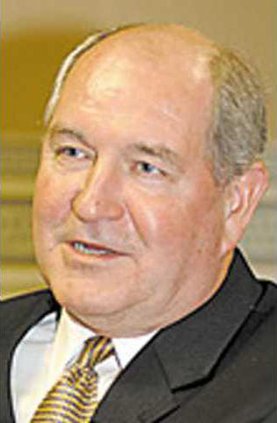The boost comes from an infusion in federal stimulus money and will bring the average weekly unemployment check in Georgia to $292. The maximum check will rise to $355.
Thurmond and Gov. Sonny Perdue signed a memorandum of agreement to accept a portion of the money Friday.
Echoing concerns voiced by several other conservative Southern governors, Perdue suggested over the weekend at a meeting of the National Governor's Association that he might not accept the federal stimulus money for unemployment because it could cost the state down the road. But he had already inked the deal to accept some of the federal cash.
Perdue spokesman Bert Brantley said Monday that the governor signed off on the increase in weekly benefits because it comes at no cost to the state. The governor was still studying the cost of accepting other streams of federal stimulus cash to see what money the state should take.
"We're still giving everything a hard look to see if we are making promises and commitments to spending that will be hard to sustain the future," Brantley said.
Georgia is eligible for about $220 million in federal stimulus dollars to prop up the state's unemployment insurance fund. It's part of the $787 billion stimulus package that is expected to ultimately funnel billions of dollars to Georgia.
Thurmond on Monday urged Perdue to accept additional federal unemployment aid. He said the cost to the state is "negligible" and would not lead to an increase in unemployment taxes paid by businesses.
"Based on recent declines in the job market the money is much needed," Thurmond told The Associated Press. "It will increase the stability and solvency of the (unemployment) trust fund."
Georgia has an 8.1 percent unemployment rate, above the national average of 7.6 percent. The number of people filing first-time claims for state unemployment insurance benefits shot up 80.7 percent in January from the same month in 2008.
That's put pressure on the state's unemployment fund. The fund paid out $140 million in January and another $144 million in December. Those are, by far, the highest payouts in the state's history, Thurmond said. The fund still has $753 million and Thurmond has said he remained confident it would remain solvent for the rest of 2009.
In an interview in Washington with The Atlanta Journal-Constitution published Monday, Perdue said he's worried that accepting the federal money could force the state to change its unemployment laws and raise unemployment taxes to pay for richer benefits.
If "we have to change our laws and regulations in order to comply with federal mandates getting this money may not be worth it," Perdue told the newspaper.
But Thurmond said Monday that Georgia needs to make only one change to state law to be eligible for the money.
Part-time workers receiving unemployment benefits would no longer have to certify they are seeking full-time employment to receive the benefits, Thurmond said. Under the change - which his office would put forward in legislation this week - they could seek part-time employment and still be eligible for benefits.
The state currently allows 26 weeks of unemployment benefits, which is acceptable under the stimulus, he said. And in Georgia, part-time workers who earn more than $1,134 a year are already eligible for unemployment.
Southern Republican governors from states including South Carolina, Louisiana and Mississippi have said they may reject part of the stimulus money. But South Carolina Gov. Mark Sanford, one of the most outspoken critics of the federal bailout, said he would also accept the additional $25 a week in unemployment benefits from Washington.
Sanford spokesman Joel Sawyer said the South Carolina governor determined that every other state would be taking the extra benefit from Washington.

